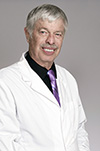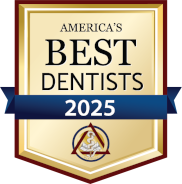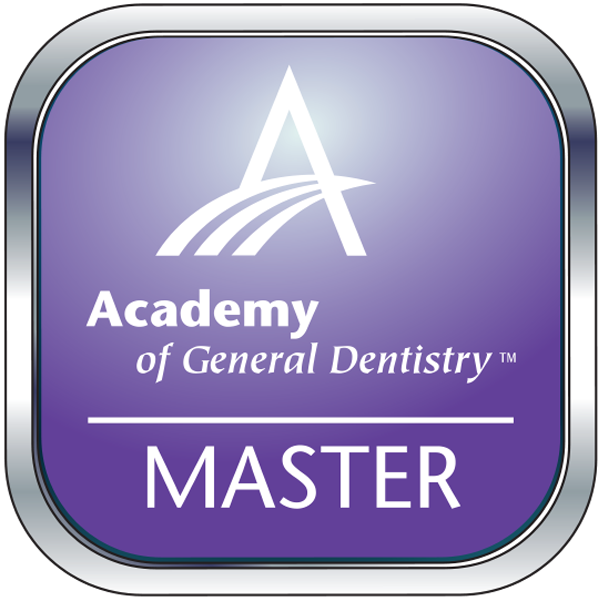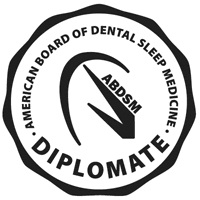FAQs

Dr. Fred S. Maron
Here are Dr. Maron’s answers to your frequently asked questions on general dentistry, including the dental services that he provides. If you have any other dental questions, let us know.
Select a topic. Then click a question to view the answer.
Sleep apnea
Yes, we work with many physicians in the area to treat sleep apnea. We make oral appliances to move the lower jaw forward, thus opening the airway.
Your physician determines if you have sleep apnea. He will send you to a facility for an overnight sleep study or send you home with a sleep monitor, depending on your insurance coverage.
The first choice of treatment is usually a CPAP. However, 50 per cent of patients discontinue using a CPAP because they cannot tolerate it or do not want to be attached to one. These patients are referred to our office with a report from the sleep study.
We evaluate your mouth for an oral appliance and study the sleep report. If you qualify, we take impressions of your teeth and determine a bite that will open your airway and decrease snoring.
All sleep appliances are adjustable. We are able to advance the jaw forward up to 5 millimeters to open the airway and decrease snoring. Our goal is to eliminate or decrease your sleep apnea. Sometimes other factors, such as obesity or medications interfere with a successful outcome.
Snoring is a prominent sign of sleep apnea. In addition, patients may exhibit excessive daytime sleepiness; stop breathing at night; or awaken suddenly with gasping, choking or shortness of breath. Two other signs of sleep apnea are difficulty concentrating in the daytime and grinding the teeth at night.
Life threatening events are associated with sleep apnea, including a 2-3 times higher risk of heart attack and stroke. Gastric reflux, diabetes, and sleepiness, which might lead to auto accidents, are also associated with it. Everyone has heard of people dying in their sleep. Some of these fatalities are due to sleep apnea. For example, former Supreme Court justice, Antonio Scalia, had sleep apnea and died in his sleep.
A sleep appliance is basically like an orthodontic appliance that is worn in the mouth. It does not require electricity, does not require wearing a mask over the face, and does not make noise. It is also easy to take on trips because it is compact. However, in some patients, it will alter the bite after extended wear.
Sometimes. The hard part is getting a sleep study so that you know if you have sleep apnea. We are one of the few Medicare Durable Medical Equipment (DME)-certified offices in Dutchess County, New York. However, due to a recent Medicare rule change, if you have used a CPAP for 3 months, you have to wait 5 years for Medicare to pay for an oral appliance. That is why we have informed medical offices that if the patient is not using the CPAP after 45 days, the patient should come to our office. Then we can make an oral appliance before the 90-day period has passed.
Some companies pay a reasonable amount for an oral appliance. Other companies want to pay an amount that barely covers the lab fee for making the appliance. We use an experienced company that handles the estimate process This company lets you know how much is covered and gets you the maximum amount possible.
Invisalign orthodontics
Our office does orthodontics with Invisalign clear braces. It is ideal for aligning teeth in adults and children whose jaw growth has ended. When a patient is young and still exhibiting jaw growth or when patients of all ages have severe skeletal or growth abnormalities, an orthodontist is better trained for treating those problems.
With the advances in clear aligner therapy, we can treat most maloccusions with Invisalign orthodontics. Align Technology (the Invisalign company) spends much money on research and has developed many new attachments, techniques, and aligner materials. As a result, Invisalign can correct most orthodontic problems. With the new aligner material, the wearing time for each aligner has decreased from 14 days to 7-10 days.
Our office treats teenagers up to any age adult. Yes, we have treated patients in their 70's! The prime requirement is that patients be willing to wear each aligner all day, except during meals. In addition, patients need to wear a retainer at night for the rest of their lives to prevent relapse. About half of our cases are people who had braces when they were young and stopped wearing retainers after about two years.
The main advantage of Invisalign is that it does not hurt like metal braces. Each aligner only moves the teeth .25 millimeters. That small movement is usually done in 1-2 days. It is a controlled, gentle movement. In addition, it is very easy to clean the teeth after eating. The movements are calculated in a computer-generated treatment plan that simulates the movement of the teeth, tells how many aligners you will need and what potential problems you might have.
Yes, we provide unlimited bleaching gel during Invisalign treatment. We have found that the aligners provide a perfect fit for holding the gel against the teeth, unlike poorly-fitting, store-bought solutions, such as White Strips. At the end of your treatment, you have a beautiful smile with whiter teeth.
Mini dental implants
Our dental office will restore all brands of dental implants. We also insert mini dental implants, which are different from the conventional dental implants.
Successful dental implants need to be placed in areas of the mouth that have enough bone. Many people have mouths that lack enough bone and need additional surgery to place bone grafts. We can place mini dental implants in much narrower bone, enabling you to avoid bone graft surgery. As we screw in the mini implant, the bone expands so that it works in narrow bone.
Mini dental implants are half the cost of conventional dental implants and are easier to place. The procedure might cause slight discomfort for 24-48 hours, but it does not require sutures or cutting the gum as does a conventional implant. The mini implant is a great option when placed in the proper area.
Mini implants have two important uses. The first use is to replace missing teeth. The second use is to anchor loose dentures so that you do not worry that your dentures will move around when you talk or eat. Lower dentures are usually very unstable because after tooth extractions the lower jaw does not have much bone left.
Conventional dental implants need 4-6 months for the bone to grow around them before a crown can be placed on them. With mini dental implants you walk into the dental office with a space in your mouth and walk out an hour later with an implant and a temporary crown to fill in the space.
Usually we prefer to place two implants on each side for a total of four implants. We can place them in one visit. A CAT scan shows us the areas with the most bone for placing the implants.
The top of a mini dental implant is shaped like a ball. We place snug-fitting nylon caps on the mini implants. We then make holes in the denture so that the denture fits over the mini implants. We fasten the nylon caps to the denture with plastic. The result is four snug nylon attachments holding the denture in place.
If the old denture fits well and the teeth are not overly worn, we use the old denture. When the old denture fits poorly or is worn and stained, we fabricate a new denture.
Patients love the security of having dentures stay in the mouth without having to use denture paste. They walk into the office with a loose denture and leave with four mini dental implants and a snug denture.
Children's dentistry
The first teeth erupt when the baby is 7-14 months old. If the teeth are late coming into the mouth, do not worry because every child has a different eruption timetable. Remember that your child will always be unique.
Clean the area from where the tooth came out with peroxide. Do not place the baby tooth back into the mouth because doing so might cause the tooth to fuse to the bone, preventing it from falling out when the new tooth erupts.
Yes, baby teeth (also known as primary teeth) are important. These teeth allow children to chew and speak. They also hold the space for the permanent teeth. Primary teeth have large nerves, and a cavity in the nerve will hurt as much as a cavity in an adult tooth.
We recommend age three for the first dental visit. At that age children are usually cooperative and can have a positive experience. Some of the dental organizations are recommending age one; however, at this early age the visit is more for the parent than the child. If the parent is already a patient, we tell the parent long before the child’s first visit what to do and what to avoid. For example, give the child a water bottle in bed—never a juice or milk bottle because juice and milk have natural sugars that cause tooth decay.
The hygienist will normally count and polish the teeth, and the dentist will do an exam. We avoid procedures, such as x-rays or fluoride treatments, which might be difficult for a three-year-old child to tolerate. Our main concern is that the child have a good experience.
Tell your child that the hygienist will count and polish his teeth. Avoid phrases that will make your child fearful, such as “It won’t hurt.” Sometimes parents or siblings also scare children by recounting their own childhood experiences at the dental office. We have heard instances where patients tell their children that the dentist pulled out their teeth with pliers at their first visit. If a child comes to a visit with positive expectations, the visit will usually be a positive one.
Although we recommend dental cleanings 3-4 times a year for adults, having dental cleanings twice a year is usually adequate for children. This frequency allows us to catch cavities at an early stage.
Oral health care
Adults should come for their cleanings at least three times a year. With adults, we are concerned about controlling gum disease. The bacteria that we associate with destructive gum disease re-forms about three months after a cleaning. The cleaning disrupts bacterial colonies, allowing us to control gum disease. I did not say cure. Gum disease is similar to diabetes in that it is controllable but not curable. We can decrease the number of the bacteria, the amount of bleeding, and the loss of bone, but the mouth will always contain bacteria and hence the chance for gum disease to flare up.
The brand of toothpaste you use is less important than the amount you use. Toothpaste contains abrasive material like sandpaper. If you use too much toothpaste over the years, you will wear away the teeth. Many of you have notches in the teeth near the gum line. These notches were caused by the sandpaper-like effect of toothpaste.
Always use a low abrasion toothpaste that does not irritate the gums. Also, sodium lauryl sulfate, which makes toothpaste sudsy, and sodium pyrophosphate, contained in some anti-tartar toothpastes, sometimes irritate the gums. If you are sensitive to these chemicals, avoid toothpastes containing them. Consumer Reports lists many good options.
Our office likes mouthwashes that contain fluoride because they eliminate early decay. We also like non-alcohol mouthwashes. ACT fluoride rinses for children are excellent because they contain no alcohol and have fluoride. They also have a great dispenser!
Yes, daily flossing is necessary to remove the bacteria from between your teeth. Tooth brushing cannot reach these areas.
If the odor is from the bacteria in your mouth, frequent dental cleanings will decrease the number of bacteria around your teeth. At home, you can also use a tongue cleaner and rinse with mouthwash that contains zinc. If the odor is from the mucous from a post-nasal drip, you have to see your physician for a remedy.
All of the over-the-counter whitening products have some ability to whiten the teeth, for they all contain some form of peroxide to remove stain. The shortcoming is in their application. For example, Crest White Strips are only wide enough to apply the peroxide to the six front teeth. If you want to lighten more than those teeth, Crest White Strips is not the product to use.
Initially, we tell patients to try an over-the-counter whitening product. If it is unsatisfactory, we take impressions and make a custom tray to hold a stronger peroxide against the teeth. Patients use these trays at home for one hour each day.
Dr William Dorfman, the dentist who starred in Extreme Makeover, gave a talk at a local dental meeting several years ago. He owned the company that makes the Zoom bleaching light. He performed bleaching in his office and then sent patients home with bleach trays to finish the job. If the in-office bleaching was so effective, the patients would not have had to go home with bleach trays. We feel it is more cost-efficient for the patient to bleach the teeth using only the trays and to skip the in-office bleaching expense.
You should have bitewing x-rays (checkup films for back teeth) every two years. Normally, we can spot decay before too much damage has occurred. In those patients with a high rate of decay, we take x-rays every year. About once every 10 years we take a full series of x-rays, which lets us examine the roots of all of the teeth.
Our dental office has a modern sterilization room with four sterilizers and two ultrasonic cleaners. We test the sterilizers weekly for their ability to kill microorganisms on the instruments. We sterilize almost all of our instruments in stainless steel cassettes, which we do not open until we treat you. This form of sterilization minimizes our handling of instruments.
Tooth and gum problems
Place the adult tooth in milk or inside the mouth next to the cheek, and see the dentist within one hour. Studies show that reinserting adult teeth into the socket within an hour after they fall out increases their successful retention by the body. The live cells on the root surface are more likely to stay alive and reattach to the bone when they remain moist and intact on the root surface.
The lack of pain is not a good indicator of dental health. You can have cavities in the teeth with no pain. The pain usually will not appear until the decay has entered the nerve and infected it. This is a late warning stage that requires either root canal therapy or extraction. In addition, patients usually do not notice gum disease until the teeth are loose or abscesses form.
I do not believe in soft teeth. Everyone has the same minerals in their teeth. In fact, teeth are harder than bone. However, our society has a high sugar and high acid diet that will soften teeth. Soda, Altoid mints, fruit rollups, and vitamin water are highly advertised products that are destructive to the teeth.
After you control the sugar and acid in your diet, we can use a variety of treatments to harden the teeth. Over-the-counter fluoride rinses, such as ACT, are useful. We also prescribe a high fluoride toothpaste, such as Prevident, and high calcium paste, such as MI paste. In addition, we can apply a fluoride varnish at an office visit and can fabricate fluoride trays for you to use at home.
Our office has started using the Perio Protect® system to treat gum disease when more conservative techniques, such as frequent dental cleanings, are not successful. Perio Protect involves forcing medication beneath the gum, where bacteria are found, by having the patient wear mouth trays that create a positive pressure. Depending on the severity of the disease, a patient may have to wear the trays for up to four times a day, for 10-15 minutes each treatment. When the disease is under control, the patient wears the trays twice a day for ten minutes each treatment. This method is attractive because it has a maintenance phase to prevent relapse.
Administrative issues
See a dentist for regular check-ups, even if you have no insurance coverage. Routine dental visits will allow us to find decay and gum disease at an early stage. If you have no insurance coverage, it will still be cheaper to have a small filling than a root canal. We spend most of our time restoring to health people who have not been to a dentist for many years. Do you want to be one of them?
The short answer is no. Dental insurance bought by individuals is usually more expensive and covers fewer procedures.
Yes, we have an in-office plan called DenVantage. You pay either yearly or monthly for the plan and get exams, cleanings, and x-rays included. All other procedures are provided at a discount. The plan has no deductible and no excluded services or required pre-authorizations.
Our office recognizes that patients have dental problems outside of our office hours. When you contact our office after hours, the answering machine gives you instructions on how to contact Dr. Maron. He promptly returns calls. In the event that the office is closed for vacation, the answering machine provides the phone number of the covering dentist.
We understand that people’s schedules change. If you are unable to keep your dental appointment, please call us or e-mail us to let us know. We maintain a list of patients who want to move up their appointment times. When you give us timely warning of a cancellation, we are able to reschedule other people to your appointment time.
We do not call. We use Solutionreach™ software to send you e-mail and text message reminders of your dental appointments.







